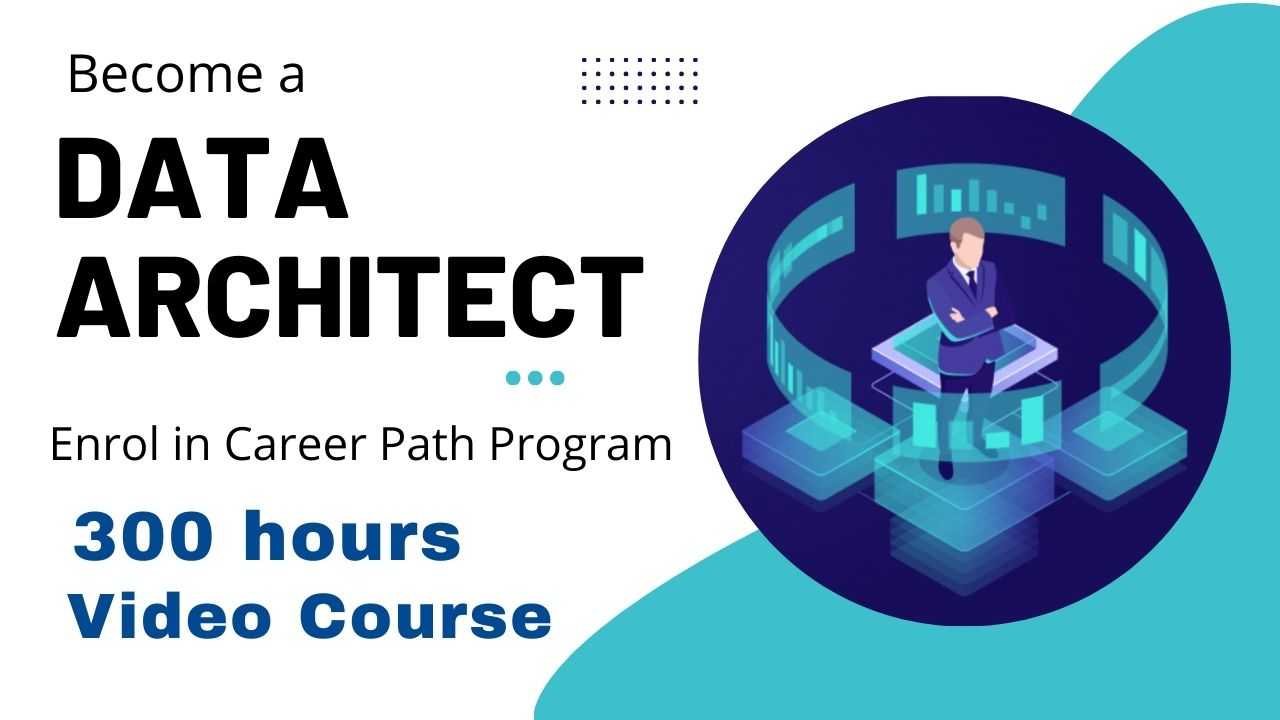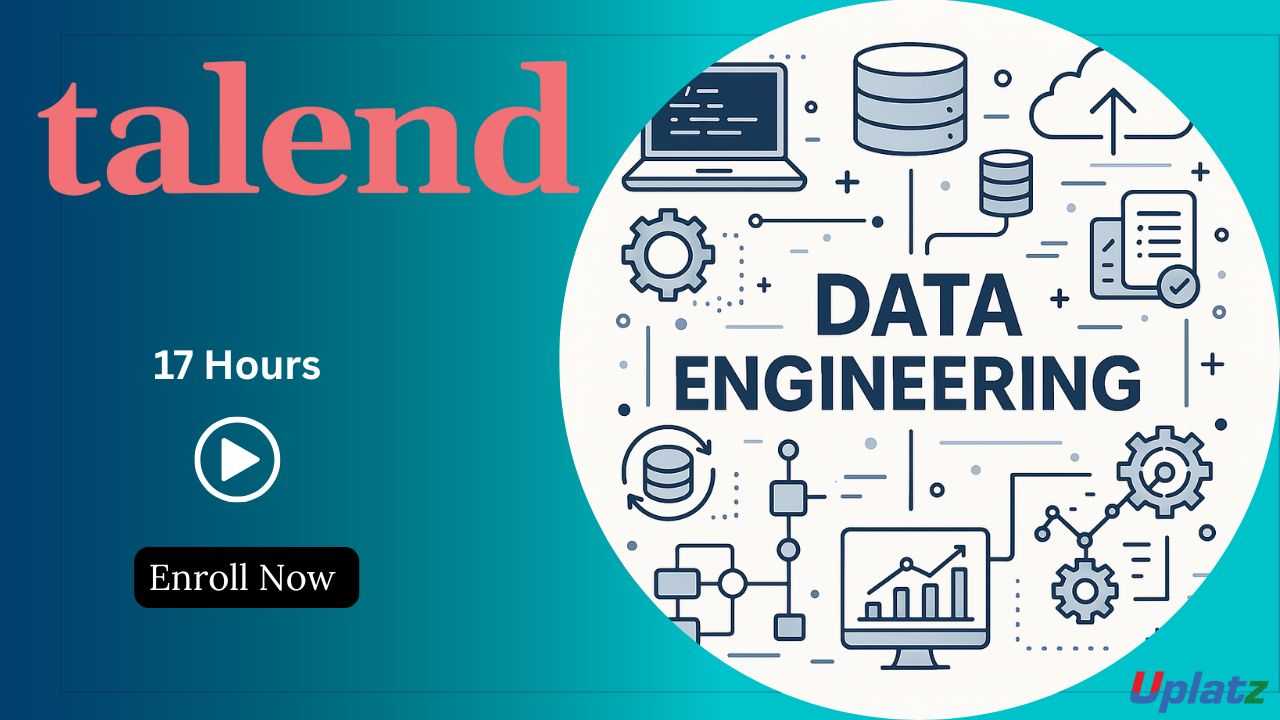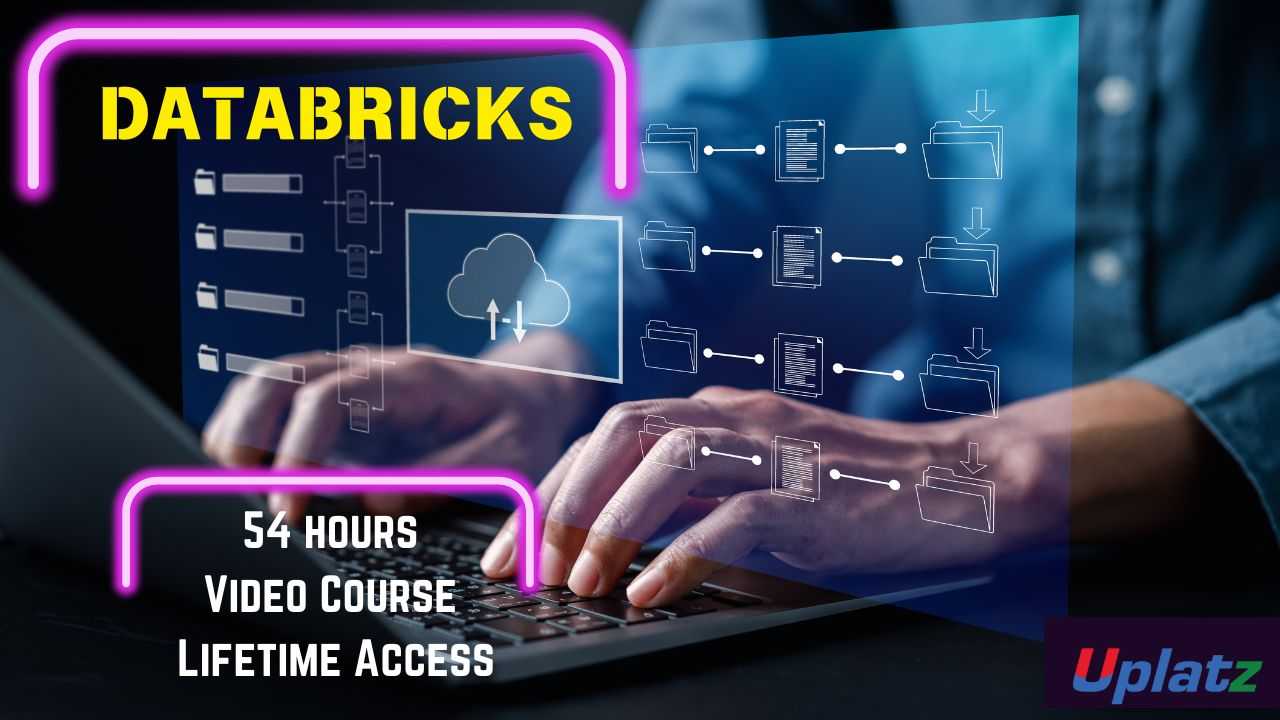Apache Kafka
Master Real-Time Data Streaming with Apache Kafka Essentials. Build Real-time Data Pipelines and Event-Driven Microservices for Scalable Applications.Preview Apache Kafka course
Price Match Guarantee Full Lifetime Access Access on any Device Technical Support Secure Checkout Course Completion Certificate 92% Started a new career
BUY THIS COURSE (
92% Started a new career
BUY THIS COURSE (GBP 12 GBP 29 )-
 88% Got a pay increase and promotion
88% Got a pay increase and promotion
Students also bought -
-

- Career Path - Data Architect
- 300 Hours
- GBP 32
- 3310 Learners
-

- Data Engineering with Talend
- 17 Hours
- GBP 12
- 540 Learners
-

- Databricks for Cloud Data Engineering
- 54 Hours
- GBP 12
- 1379 Learners

About the Course: Apache Kafka Essentials – Self-Paced Online Course
Step into the powerful world of real-time data streaming with the Apache Kafka Essentials self-paced course—a comprehensive learning program designed to equip you with the foundational and practical knowledge needed to master Kafka, the open-source distributed event streaming platform used by industry leaders across the globe. Delivered through a flexible learning format, this course features professionally recorded video lectures that you can access anytime, anywhere, at your convenience. Whether you’re balancing a busy job, education, or personal commitments, the self-paced structure allows you to progress at your own speed.
Upon successful completion of the course, you will receive a Course Completion Certificate from Uplatz, validating your newly acquired skills and knowledge in the high-demand area of event-driven architecture and stream processing.
Apache Kafka has emerged as a core component in modern data architecture. It enables organizations to build fault-tolerant, scalable, and high-throughput messaging systems that support everything from activity tracking and log aggregation to complex stream processing and microservices communication. As businesses rely more on data-driven decisions in real time, professionals who can work with Kafka are increasingly sought after.
This course has been developed to offer a structured, in-depth overview of Kafka’s ecosystem, its core components, and the practical know-how to implement, operate, and troubleshoot Kafka-based systems. Whether you are just starting out or looking to solidify your understanding of Kafka for more advanced projects, this course provides both the theory and hands-on practice you need to build real-time data pipelines confidently.
What You Will Learn
The course content is carefully organized to cover all the essential aspects of Apache Kafka, starting from the basics and gradually progressing into more advanced concepts and implementation techniques. You’ll learn through a combination of theoretical lessons, live demonstrations, and practical examples that mirror real-world use cases.
Who Should Enroll in This Course?
This course is ideally suited for:
- Data Engineers building robust data pipelines
- Backend Developers implementing messaging systems
- DevOps Professionals responsible for infrastructure and monitoring
- Big Data Enthusiasts exploring modern data frameworks
- System Architects designing scalable data platforms
- Students and Career Changers looking to enter the world of data engineering and real-time analytics
A basic understanding of programming (preferably in Java or Python), system commands, and databases will be helpful, though not mandatory. The course is structured to guide beginners while offering value to intermediate learners seeking to deepen their Kafka knowledge.
How to Use This Course Effectively
To get the maximum benefit from this self-paced program, it’s important to follow a learning strategy tailored to your goals and schedule. Here’s how to use the course efficiently and retain your learning for long-term growth:
1. Set Clear Learning Goals
Before diving in, define what you want to achieve—whether it’s building a Kafka-based project, preparing for a job interview, or transitioning into a data engineering role. This will guide how you pace yourself and which topics you may want to spend more time on.
2. Follow the Recommended Order
Modules are designed to build on each other. Begin with the introduction and foundational architecture before progressing to producers, consumers, and stream processing. Avoid skipping ahead, especially if you're new to Kafka.
3. Practice Hands-On Implementation
The best way to learn Kafka is by doing. Set up Kafka on your local system or use Docker images as shown in the course. Replicate the examples provided in each video and then try modifying them to see how Kafka behaves under different scenarios.
4. Take Notes and Build a Cheat Sheet
As you go through the videos, take notes on configuration properties, command-line utilities, and architecture diagrams. These will serve as quick references when you work on actual projects or prepare for interviews.
5. Complete Mini-Projects and Exercises
Each module includes practical exercises or coding demos. Don't skip these—they are designed to reinforce your understanding. Try building small Kafka applications such as a chat service or real-time log aggregator.
6. Use External Documentation
Refer to the Apache Kafka documentation when you want to dive deeper into specific configurations or use advanced features. This habit will help you become self-sufficient as a Kafka practitioner.
7. Revisit Complex Modules
Topics like stream processing, Kafka Connect, or security may require a second pass to fully grasp. Don’t hesitate to replay sections or seek clarification through community forums or hands-on trial.
8. Apply What You Learn to Real Scenarios
If you’re working on a project or can simulate one (such as data ingestion from sensors or user tracking), apply your knowledge directly. Nothing beats experiential learning when it comes to mastering Kafka.
9. Showcase Your Certification
Once you complete the course and receive your Uplatz Course Completion Certificate, include it in your LinkedIn profile, resume, or GitHub portfolio. It’s a strong validation of your ability to work with real-time distributed data systems.
Where This Course Can Take You
After completing this course, you'll be well-prepared to:
- Work on real-time analytics and data pipeline projects
- Contribute to microservices architectures with Kafka-based communication
- Pursue roles like Kafka Developer, Data Engineer, or Big Data Architect
- Build scalable, fault-tolerant systems in high-demand industries like finance, e-commerce, and IoT
By mastering Apache Kafka, you’ll position yourself at the forefront of real-time data engineering and event-driven software design—a critical skillset for today’s data-centric world.
Course/Topic 1 - Course access through Google Drive
-
Google Drive
-
Google Drive
By the end of this course, learners will be able to:
- Understand real-time data streaming concepts and the role of Apache Kafka in modern architectures.
- Explore the core components of Kafka: Brokers, Topics, Partitions, Producers, and Consumers.
- Set up and configure Apache Kafka clusters for high availability and performance.
- Build producers and consumers using Kafka’s APIs for real-time message publishing and consumption.
- Implement Kafka Connect for integrating with external systems (databases, cloud services, etc.).
- Use Kafka Streams and KSQL for building data transformation pipelines and analytics.
- Design fault-tolerant and scalable data streaming architectures.
- Monitor and manage Kafka clusters using tools and metrics.
- Apply security and best practices, including encryption, authentication, and topic-level access control.
Apache Kafka - Course Syllabus
- Introduction to Apache Kafka
- Overview of Apache Kafka and its architecture
- Understanding Kafka topics, partitions, and brokers
- Use cases and applications of Kafka in real-time data streaming
- Setting up Apache Kafka
- Installing and configuring Apache Kafka clusters
- Managing topics, partitions, and replication in Kafka
- Monitoring and managing Kafka clusters using command-line tools and web interfaces
- Kafka Producers and Consumers
- Writing Kafka producers to publish messages to topics
- Developing Kafka consumers to subscribe to topics and process messages
- Configuring producers and consumers for high throughput and fault tolerance
- Kafka Connect: Integrating with External Systems
- Introduction to Kafka Connect framework
- Building and deploying Kafka connectors for integrating with external data sources and sinks
- Configuring connectors for various use cases such as databases, message queues, and file systems
- Kafka Streams: Stream Processing with Kafka
- Introduction to Kafka Streams library
- Developing stream processing applications using Kafka Streams DSL
- Implementing real-time data transformation, aggregation, and analytics with Kafka Streams
- Advanced Kafka Concepts
- Kafka architecture patterns and best practices
- Security and authentication in Kafka clusters
- Performance tuning and optimization techniques for Kafka deployments
- Real-world Kafka Applications and Use Cases
- Case studies and examples of real-world Kafka deployments
- Building end-to-end streaming applications with Kafka for use cases such as log aggregation, event-driven architectures, and IoT data processing
- Monitoring and Operations
- Monitoring Kafka clusters and applications using metrics and logging
- Performing maintenance tasks such as scaling, upgrading, and reconfiguring Kafka clusters
- Handling common operational challenges and troubleshooting issues in Kafka deployments
- Best Practices and Optimization
- Best practices for designing, deploying, and managing Kafka clusters
- Optimization techniques for improving Kafka performance, scalability, and reliability
- Implementing disaster recovery and high availability strategies for Kafka deployments
- Hands-on Projects and Labs
- Hands-on exercises and projects applying learned concepts and techniques
- Building real-time data streaming applications using Kafka
- Implementing end-to-end data pipelines with Kafka for various use cases
- Final Project and Certification
- Capstone project demonstrating mastery of Apache Kafka concepts and skills
- Evaluation and feedback from instructors and peers
- Course completion certificate for successful participants
This syllabus covers a comprehensive range of topics to equip participants with the knowledge, skills, and practical experience needed to design, deploy, and manage real-time data streaming applications using Apache Kafka.
Upon completing the Apache Kafka Essentials: Mastering Real-Time Data Streaming course, you’ll receive a Course Completion Certificate from Uplatz, validating your ability to design and manage streaming data pipelines using Kafka.
This certificate strengthens your professional profile and positions you for roles in big data, data engineering, DevOps, and stream analytics. It also serves as a solid foundation for pursuing Confluent Certified Developer for Apache Kafka (CCDAK) or similar certifications.
Apache Kafka is a key technology in modern data-driven organizations. After completing this course, you can pursue roles such as:
- Apache Kafka Developer
- Real-Time Data Engineer
- Streaming Data Architect
- Big Data Engineer
- DevOps Engineer (Streaming Focus)
- Data Integration Specialist
Kafka skills are in high demand across industries such as finance, e-commerce, logistics, telecommunications, IoT, and cloud computing, where real-time data processing is essential for business intelligence, automation, and user experience.
1. What is Apache Kafka and what is it used for?
Apache Kafka is a distributed streaming platform used for building real-time data pipelines and stream processing applications. It’s designed for scalability, fault-tolerance, and high throughput.
2. What are Kafka Topics and Partitions?
A Topic is a logical stream of messages in Kafka. Each topic is split into partitions, which allow Kafka to scale horizontally and process messages in parallel.
3. How does a Kafka Producer work?
A Kafka Producer sends messages to a Kafka topic. It can choose partitions explicitly or rely on Kafka’s built-in partitioning logic based on keys or round-robin.
4. What is the role of a Kafka Consumer?
Consumers read messages from Kafka topics. They can be organized into consumer groups for load balancing and parallel processing of data.
5. What is Kafka Connect?
Kafka Connect is a framework for connecting Kafka with external systems such as databases and cloud services using ready-made or custom connectors.
6. What are Kafka Streams and how do they differ from Kafka Connect?
Kafka Streams is a client library for real-time data transformation and aggregation. Unlike Kafka Connect (integration-focused), Streams is used to process data in-flight.
7. How does Kafka ensure durability and reliability of messages?Kafka writes data to disk, replicates it across brokers, and allows configuration of acknowledgment levels to ensure message durability and delivery guarantees.
8. What are the different delivery semantics in Kafka?
Kafka supports at-most-once, at-least-once, and exactly-once delivery semantics, depending on producer and consumer configuration.
9. What tools can be used to monitor Kafka clusters?
Common tools include Confluent Control Center, Kafka Manager, Prometheus, Grafana, and JMX-based tools.
10. How does Kafka handle message retention?
Kafka retains messages for a configurable time or size limit, even after they’ve been consumed, allowing for reprocessing or fault recovery.









